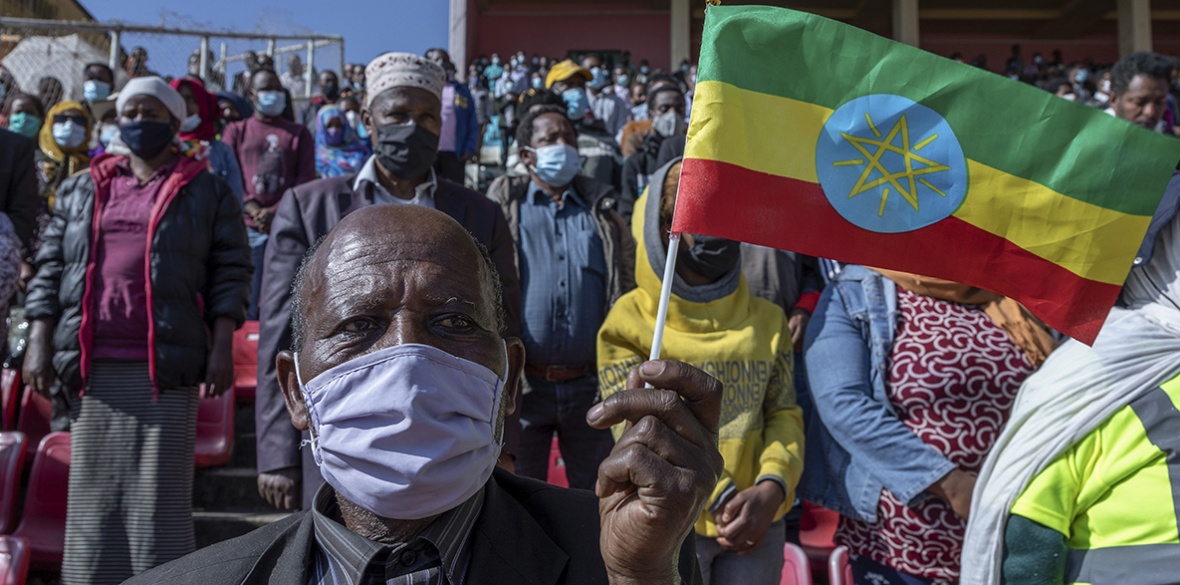This is the last article you can read this month
You can read more article this month
You can read more articles this month
Sorry your limit is up for this month
Reset on:
Please help support the Morning Star by subscribing here
ETHIOPIAN Prime Minister Abiy Ahmed was accused of war crimes today as officials in Tigray region claimed that federal air strikes had destroyed its hydroelectric dam.
According to local media reports, strikes hit the Tezeke dam, which generates power for the northern region.
Such attacks on infrastructure are banned under international law and could amount to a war crime, the Tigray People’s Liberation Front (TPLF) said.
Hundreds of people are believed to have been killed in bombing raids and fighting since the Ethiopian government launched a military offensive in Tigray last week.
Tensions between Tigray and Mr Abiy’s administration escalated after the region held elections in September against the prime minister’s wishes.
The federal government branded the vote unconstitutional and last weekend dissolved the Tigrayan parliament.
On Thursday, police claimed to have arrested about 150 “criminal” operatives of the TPLF in the capital, Addis Ababa, and elsewhere on suspicion of planning “terror attacks.”
As the civil war unfolds, reliable information has become hard to obtain, with telephone lines and the internet cut off in the region amid accusations that “fake news” is being spread.
In a statement published today, human-rights group Amnesty International claimed that “scores, and likely hundreds, of people were stabbed or hacked to death in Mai-Kadra town in the south-west zone of Ethiopia’s Tigray region on the night of 9 November.”
Amnesty said it had “digitally verified gruesome photographs and videos of bodies strewn across the town or being carried away on stretchers.”
It said the victims of what it described as “a horrific tragedy” appeared to be labourers and not fighters in the conflict. It is unclear who was responsible for the attacks, but Mr Abiy blamed the TPLF.
In a televised address on Thursday evening, Mr Abiy claimed that government forces had “liberated” the western part of Tigray and were making major gains.
The United Nations warned earlier this week that vital supplies are at risk, with shortages of basic commodities such as flour and fuel being reported.
About 600,000 people in Tigray rely on humanitarian food aid and the conflict is making the situation worse.
Despite calls by the African Union and the international community, Mr Abiy has refused to enter peace talks until what he calls “a law enforcement operation” has ended.











